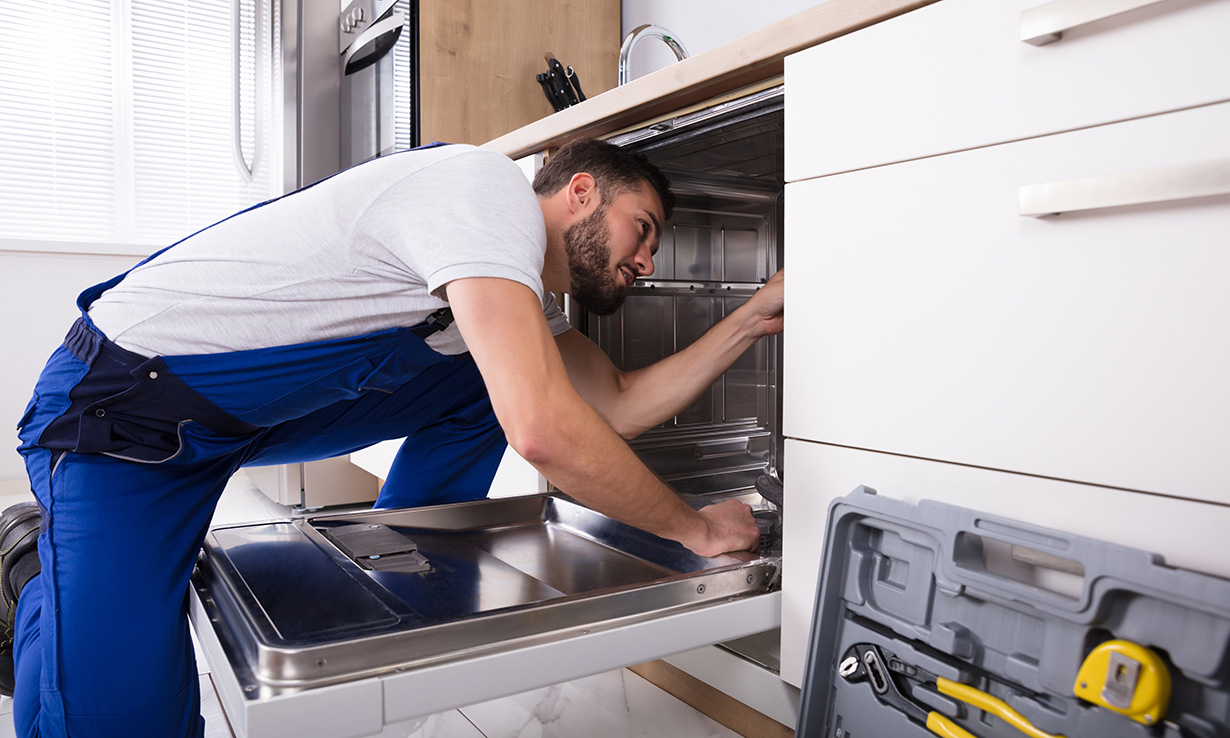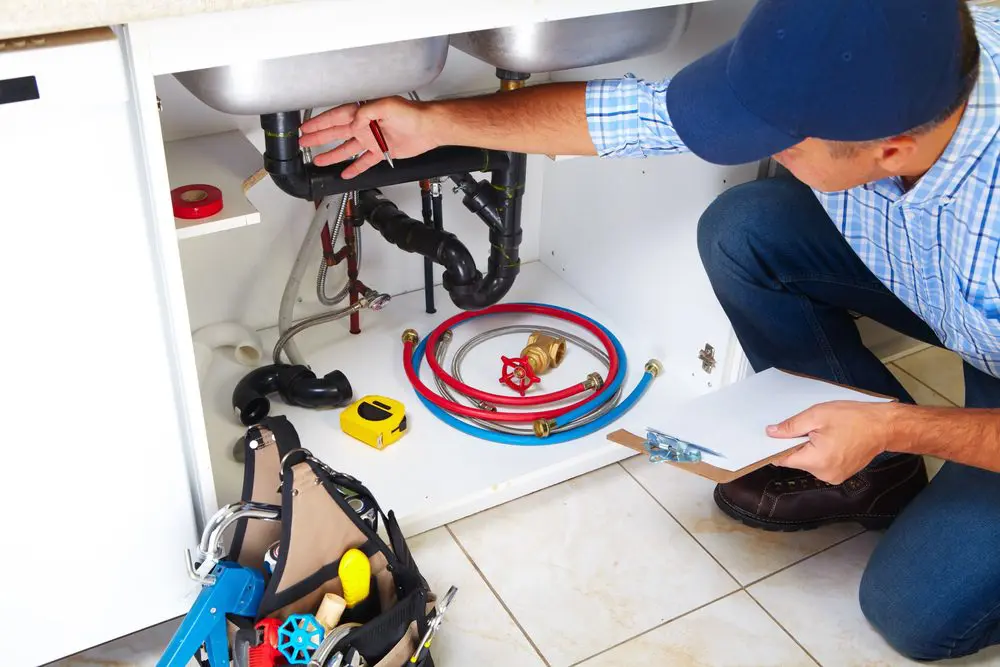Six Practices You Must To Change To Protect Your Plumbing
Six Practices You Must To Change To Protect Your Plumbing
Blog Article
The article down below about Can Hard Water Ruin Your Appliances? is relatively remarkable. Read it for your own benefit and figure out what you think about it.

The key to durable home appliances, unsurprisingly, is proper maintenance. There's no hard and fast rule that can guarantee your plumbing home appliances a lengthy wear, however you can prevent unneeded damage and also repair services by avoiding negative plumbing routines.
You ought to quit doing these 6 things else you'll maintain calling your plumber over for minor faults.
Flushing everything
Yes, your bathroom drainpipe causes the sewers, yet that doesn't suggest you must dump simply anything down the drain. Several 'flushable' materials are in fact fantastic obstruction starters, as an example dental floss. Asides maintaining apparent non-flushable products like wires and also plastics out of your toilet, you need to also stay clear of flushing cotton swab, menstrual items, wipes, daipers and condoms down the commode drain.
DIYing whatever
With plumbing, a stitch in time actually does save 9. You can protect against a fullblown plumbing emergency by calling your plumber at the right time.
You might have discovered a couple of plumbing hacks from your father, yet you ought to understand where to draw a line and call a professional. As an example, you might be able to take care of an obstruction yourself, however you should not attempt to change a pipe. You can inequality pipes or overtighten a bolt, creating even more injury and damage than you believed. Calling a plumber is a secure and budget-friendly choice.
Using too much drain cleaner
Utilizing a drainpipe cleaner greater than once or twice a month is a sign that something severe is going on within your pipes. Currently, as opposed to encountering the main issue, you opt for a quick fix; a carbonated drainpipe cleaner. Rightfully, a drainpipe cleaner will care for the clog, but at what price?
The chemicals in a drainpipe cleaner can hasten the corrosion of your pipes. Add that to whatever underlying issue is triggering the blockage as well as you might need to a severe issue on your hands.
If you experience too many obstructions, call your emergency plumber rather than making use of a drainpipe cleaner.
Putting oil in the sink
We understand effectively disposing of oil after a hearty meal is a pain. However just putting it down the drain can do long-term damage to your pipes. "The fat and also grease can block your drainpipe terribly enough to compel you to call a plumber," discusses Dawson. "Plumbing works best when it's well cared for-- not abused with oil."
Not changing your dishwasher hose pipes
One very easy method to guarantee that you use your dishwashing machine for many years is to replace the pipe at least as soon as in five years. This likewise gets washing device tubes.
With time, food fragments, soap and oil can create obstructions within your pipes. Replacing them in a timely manner will certainly protect against any kind of presure develop that can harm the internal functions of your dish washer or washing maker.
A strengthened steel entwined hose pipe does a terrific job of lengthening your device's usage time.
No wintertime safety measures
Severe weather are bad for your pipelines, especially if they're constructed from steel. You need to protect your revealed pipes, and also your water storage tank, even if you have a hot water heater. You must also shut off your garden pipe shutoff as well as any other external water networks. These channels are electrical outlets for cool; you pipes can begin to freeze from outdoors if you do not.
How Hard Water Damages Your Plumbing and Appliances
Hard water is no stranger to most households across America. This silent invader affects 85% of homes in the United States every day, wreaking havoc on pipes, plumbing fixtures, and water-using appliances.
Should you become a victim of hard water, you must understand exactly what it is and how it affects your plumbing and appliances. This will help you determine the correct measures to put in place to fix or prevent any problems that may arise.
First off, what exactly is “hard” water?
In short, “hard water” is used to describe water that contains relatively high amounts of dissolved minerals, primarily calcium and magnesium, and a host of trace metals. When rainwater falls from the sky (usually in a pure form), it absorbs the hardness minerals from rocks and soil, which changes it from soft to hard water.
What about my plumbing and appliances?
Mineral deposits from hard water can cause buildup on tubs, shower, sinks, faucets. But that’s only a small scratch of the surface. Those minerals can gradually build up inside pipes, fixtures, water heaters, washing machines, and dishwashers. Once they accumulate in those areas, they can clog pipes and create major problems throughout your plumbing system, from reduced water flow to increased pressure on pipes and fixtures.
This limescale buildup might affect some appliances, causing them to operate less efficiently and wear down faster. And the result? Higher energy bills, more (costly) plumbing replacements and repairs, and damaged appliances.
Keep in mind that certain types of plumbing are more susceptible to clogging than others. Copper, PVC, and PEX pipes are more resistant to hard water buildup and corrosion, but they can still get clogged or completely blocked by scale deposits.
How do I know if my water is hard?
White limescale buildup on plumbing fixtures (or any of the other signs mentioned above) is usually a good sign that your water is hard. If you suspect that you have hard water, you can simply shake up a small amount of dish soap and water in a closed container. If the mixture doesn’t create a lot of suds, you probably have hard water.
The most precise method, however, is to test your water with a DIY test kit (sold online or at local home centers or hardware stores) or send a water sample from your tap to a local lab to be tested. Be sure that you understand the nature of the test, the water condition being measured, and the significance of the test results.
Another way to obtain an estimate of water hardness is to check your annual water quality report to see if your water provider has reported any instance(s) of water hardness in your water supply.
https://www.springwellwater.com/how-hard-water-damages-your-plumbing-and-appliances/

As a passionate person who reads on Leak Detection and Repair Without Destroying Your Home, I figured sharing that excerpt was important. Loved our blog posting? Please share it. Help somebody else discover it. Thanks so much for taking the time to read it.
Book Service Now Report this page